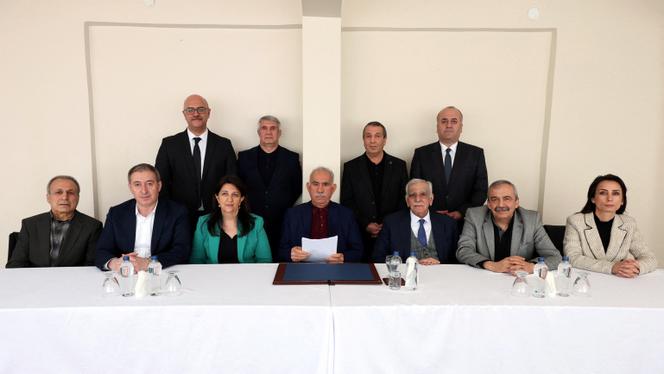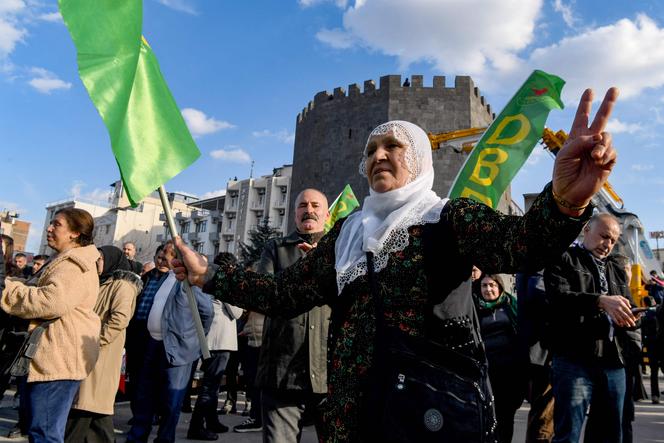



Jailed PKK founder Abdullah Öcalan on Thursday, February 27, called for his Kurdish militant group to lay down its weapons and dissolve itself in a landmark declaration read out in Istanbul.
The call came four months after Ankara offered an olive branch to the 75-year-old who founded the Kurdistan Workers' Party (PKK), which has led a decades-long insurgency against the Turkish state that has cost tens of thousands of lives.
"All groups must lay down their arms and PKK must dissolve itself," he said in a declaration drawn up in his cell on Imrali prison island where he has been held in solitary confinement since 1999. "I am making a call for the laying down of arms, and I take on the historical responsibility of this call," he said in a statement.
His words were read out by a delegation of lawmakers from the pro-Kurdish DEM party who visited him earlier on Thursday, the declaration sparking spontaneous applause inside the packed hall.
In the Kurdish-majority city of Diyarbakir in the southeast, where around 3,000 people had gathered at a square to listen to an audio broadcast of Öcalan's call, some broke into spontaneous applause while others broke down in tears.
"Öcalan's call for the PKK to disarm and disband represents a seismic shift. Not just for Turkey, which has waged a decades-long war against the group, but for the region at large," said Hamish Kinnear, senior analyst at Verisk Maplecroft.
But his words elicited a cautious response from a senior figure within President Recep Tayyip Erdogan's ruling AKP. "If the terrorist organization heeds this call, lays down its arms and dissolves itself, Turkey will be freed from its shackles," Efkan Ala, AKP's deputy chairman was quoted as saying by the state news agency Anadolu.
The big question is how his message will be received by fighters whose military leadership is mostly based in the mountains of northern Iraq.
Of particular concern are those fighters allied with the US-backed Syrian Defence Forces (SDF) in northeastern Syria – a force under pressure from Damascus to disarm but which is fighting off attacks by Turkish-backed militia groups.
Since Öcalan was jailed in 1999, there have been various attempts to end the bloodshed which erupted in 1984 and has cost more than 40,000 lives. The last round of talks collapsed amid violence in 2015.
After that, there was no contact until October when hardline nationalist MHP leader Devlet Bahceli offered Öcalan a surprise peace gesture if he would reject violence in a move endorsed by Erdogan.
Although Erdogan extended his full support for the rapprochement in late October, he has said little since. And his government has cranked up pressure on the opposition, arresting hundreds of politicians, activists and journalists and removing 10 recently-elected DEM mayors, all of whom have been charged with "terror ties."
Despite the wave of arrests, many are hoping Öcalan's call will ultimately result in concessions for the Kurds, who make up around 20 percent of Turkey's 85 million population.
